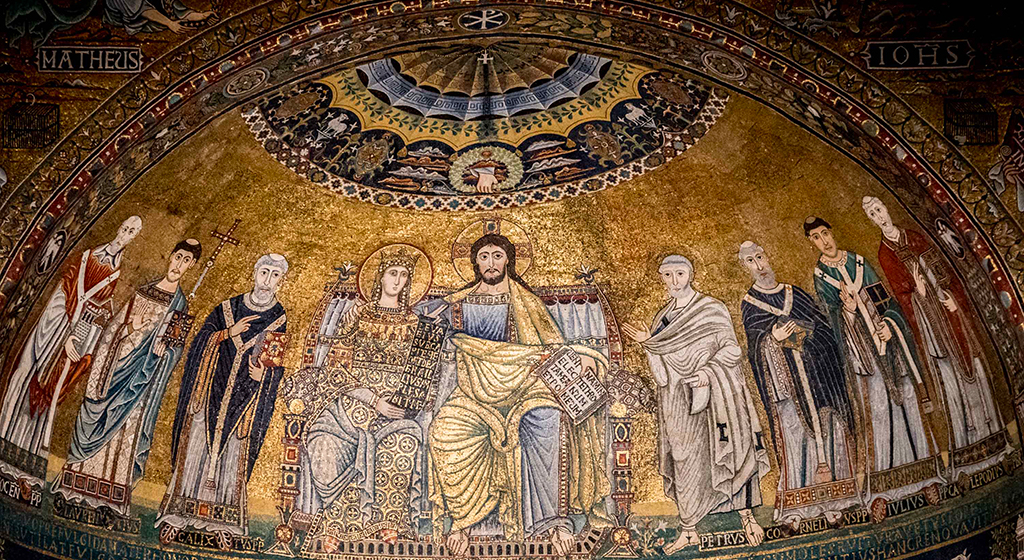Memory of the Church
Reading of the Word of God
Alleluia, alleluia, alleluia
I am the good shepherd,
my sheep listen to my voice,
and they become
one flock and one fold.
.
Alleluia, alleluia, alleluia
Exodus 19,1-2.9-11.16-20
Three months to the day after leaving Egypt, the Israelites reached the desert of Sinai. Setting out from Rephidim, they reached the desert of Sinai and pitched camp in the desert; there, facing the mountain, Israel pitched camp. Yahweh then said to Moses, 'Look, I shall come to you in a dense cloud so that the people will hear when I speak to you and believe you ever after.' Moses then told Yahweh what the people had said. Yahweh then said to Moses, 'Go to the people and tell them to sanctify themselves today and tomorrow. They must wash their clothes and be ready for the day after tomorrow; for the day after tomorrow, in the sight of all the people, Yahweh will descend on Mount Sinai. Now at daybreak two days later, there were peals of thunder and flashes of lightning, dense cloud on the mountain and a very loud trumpet blast; and, in the camp, all the people trembled. Then Moses led the people out of the camp to meet God; and they took their stand at the bottom of the mountain. Mount Sinai was entirely wrapped in smoke, because Yahweh had descended on it in the form of fire. The smoke rose like smoke from a furnace and the whole mountain shook violently. Louder and louder grew the trumpeting. Moses spoke, and God answered him in the thunder. Yahweh descended on Mount Sinai, on the top of the mountain, and Yahweh called Moses to the top of the mountain; and Moses went up.
Alleluia, alleluia, alleluia
I give you a new commandment,
that you love one another.
Alleluia, alleluia, alleluia
In describing the handing over of the tablets of the Law, the sacred author emphasises the feelings of fear aroused among the Israelites by the divine apparition: "On the morning of the third day there was thunder and lightning...all the people who were in the camp trembled." All the people took their stand at the foot of the mountain, while Moses, who had climbed the mountain, "would speak and God answered him with a voice." Faith and the covenant are born in this dialogue: God speaks to Moses. It is the word that establishes the bond between God and the people. God speaks, and his word is transmitted to Israel through Moses, who then reports the people's response to God. Moses' mediation is therefore fundamental and is in function of the transmission of a word that needs someone to hear and communicate it, because otherwise it remains indeterminate, like an empty sound. But beyond the word there is also seeing, even if it has paradoxical features: Israel witnesses an impressive manifestation of natural phenomena but does not actually see God. What is actually very clear is the inaccessibility of God. He is the holy one, that is, the separated one. There are, however, signs of his presence, of his action, of his power to change. His face remains inaccessible, but not distant, not foreign. He makes himself present among men and women through his Word and the signs that point to his presence. The day will come when he will personally come down to earth, through his Word that takes on flesh, Jesus.
